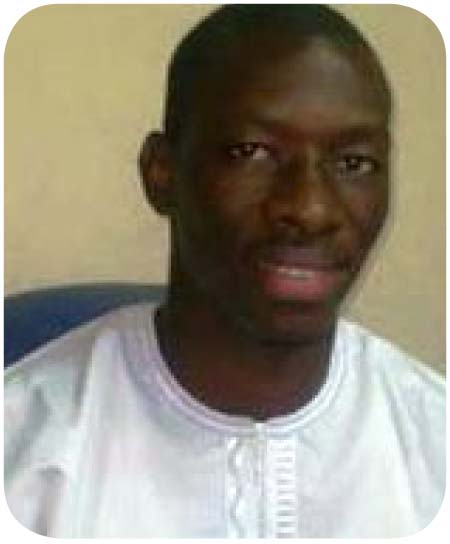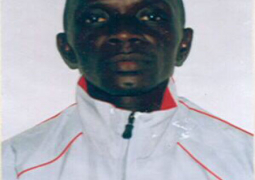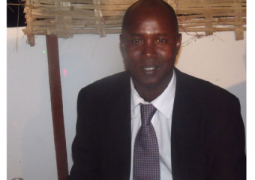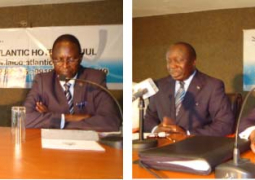
When the case was called, the state was represented by DPP Barkun, and the accused was represented by lawyer Combeh Gaye-Coker.
Continuing his testimony under cross-examination, Lamin Ceesay, (PW3), was asked by the defence counsel to look at exhibits B2 and B2A and further asked: “Now who signed that message?”
“It is signed by Sniper 3, secretary to the group,” PW3 Ceesay said.
“Did you find out who is Sniper 3 secretary to the group during the course of your investigations?”
“No”.
“Is it correct that the author of the group is Sniper 3 secretary to the group?”
“Yes, as shown in the message”, the witness said.
“I put it to you that the author of the message has nothing to do with the accused?”
“We’re not interested in who the author was, but who sent the message.”
“Those two complainants, Zainab Koneh and Fatou Drammeh at the time of sending the message were both known to the accused person?”
“Yes”
“What is Ms Koneh’s relation to the accused?”
“I don’t know,” the witness said.
“As a lead investigator did you at the time of your investigations interrogated Ms Koneh?”
“No”.
“Did you know that she gave a statement at the NIA?”
“Yes.”
“Have you seen that statement before?”
“Yes,” I saw it, but I cannot remember what is there.”
“Zainab admitted in her statement that she was the accused person’s girl friend?”
“If that is what she said then it is true.”
“They exchanged numerous messages via WhatsApp?”
“I don’t know.”
“Did you not tell this court that you went through the phones of both of them?”
“I went through the telephones in other to extract those messages, but I am not interested in the other chats.”
“Are you admitting that you saw other messages, but you were only interested in exhibit B2 and B2A?”
“Yes”.
“Mr Ceesay, I’m putting it to you that it is not out of the ordinary for people in a relationship to exchange messages, images, and videos via telephone or electronics?”
“Yes”.
“Where is the accused person’s phone?”
“I don’t know.”
“Are you not the lead investigator in this case?”
“I don’t know.”
“Mr Ceesay you are not a truthful witness?”
“I am a truthful witness,” PW3 said.
“Now take a look at this phone, is it the android phone you checked?”
“Yes, this is not an android phone, but IPhone.”
“Did you remember whether the phone has a password?”
“I don’t remember.”
At this stage, Maimuna Touray, the fourth prosecution witness (PW4), was called to enter the witness box to begin her evidence.
In her testimony, she told the court she lives in Banjul and that she is the head of the computer transcription unit of the Banjul High Court.
Ms Touray told the court that there was a court order for her unit to transcribe the chat in the phone of the witnesses, which she complied with.
PW4 said she screened shot on the chat and printed it out.
At this juncture, the DPP showed a document to her, which she identified as the one she printed.
Without objection from the defence counsel it was admitted in evidence.
Under cross-examination by defence counsel Gaye-Coker, the witness told the court she has diploma in Information Technology.
She further told the court that the chats were contained in an application called “WhatsApp”, and that it was possible to print it out by following the procedures she applied.
Ms Touray also told the court she did not know whether there were other ways to print the chats, adding that she accessed the screen shot in the phone, but she could not remember where exactly it is in the phone.
At this juncture, the DPP announced the closure of the prosecution’s case.
This prompted defence counsel Gaye-Coker to apply for Fatou Drammeh’s (PW2) evidence to be expunged.
Lawyer Gaye-Coker argued that the DPP on 11 November 2015, applied for the evidence of PW2 to be interposed.
The defence counsel further argued that since PW4 was not available for the continuation of cross-examination, she was applying for her evidence to be expunged.
She cited several authorities, which according to her, was binding on the high court and that the law was very clear.
In response, DPP Barkun argued that the witness had been cross-examined substantially, but it was not complete.
He further argued that expunging the witness’ evidence is not the Gambian law, citing authorities to support his arguments.
At that juncture, Justice Abi adjourned the case until 17 December 2015, at 12noon for ruling, and defence.




